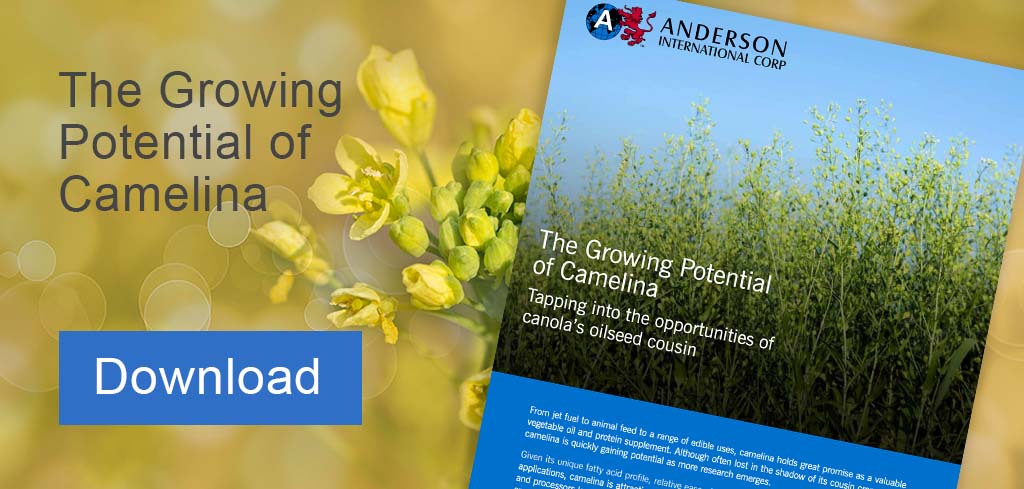
Oilseed processing can be a massive undertaking between all the industrial equipment, specialized expertise, and intricate steps required to run a pressing plant. To tap into these capabilities quickly with less cost and reduced risk, companies may outsource their crushing operation to a toll processing partner instead.
By paying an oilseed toll processor to crush your raw seed material into oil and meal, your company can scale up production and launch into new oilseed markets without the cost and learning curve of pressing in-house. But to make the most of this third-party partnership, it’s critical to understand exactly how oilseed toll processing works, the benefits of this model, and why companies choose this option.
Here’s what you need to know about toll crushing to make it work for you.
Learn more about increasing profits as an oilseed processor: Maximizing crush margins in oilseed processing
What is toll processing?
Toll processing is an arrangement in which a company pays a third-party plant to process its raw materials into byproducts. In the oilseed processing industry, specifically, a toll processor might provide services like milling and grinding, drying, and/or pressing oilseeds on a contract basis for companies that don’t have the capabilities in-house to do it themselves. These companies provide raw seed material to the toll crusher and pay a fixed rate per ton to receive processed oil and meal in return.
The benefits of toll processing
Building or expanding your own processing plant is an expensive endeavor. You need a viable, long-term business strategy to justify the investment. Before making significant capital investments to acquire your own pressing equipment, hire expert personnel, or obtain industry permits and certifications, you can partner with an oilseed toll processor to start developing your product and your customer base.
Outsourcing crushing operations helps companies process oil more efficiently and cost-effectively by leveraging a toll partner’s existing expertise and equipment. Both the toll processor and the seed owner gain advantages from this mutually beneficial partnership. Here are some of the biggest benefits of oilseed toll processing.
- Reduced risk
The toll crushing model is attractive to processors because it helps them avoid sharp price fluctuations in commodity oilseed markets. The prices of raw soybeans, soybean oil, and soy meal might swing wildly from one month to the next, making it difficult for processors to make a profit when costs aren’t in their favor. But by getting paid to crush seed for other companies, toll processors earn a fixed, guaranteed rate per ton without having to deal with a shifting market. These consistent margins make toll crushing a much safer economic model for the processor.
- Lower investment cost
Seed owners also benefit from the contract pricing structure because the toll processor charges them a fixed rate—far less than the cost of building a new facility with top-of-the-line pressing equipment and experienced personnel. Typically, toll crushing rates are based on the processor’s maintenance costs and utilities, like gas and electricity, required to run the plant. The seed owner pays this fixed rate per ton without the other overhead hassles and risks of running their own plant.
- Scalable production efficiency
Toll processing provides on-demand crushing capabilities so companies can venture into new markets, test out new products, or ramp up production quickly without making big commitments. Instead of building a dedicated production line for each type of oilseed, companies can leverage the resources of established processors to press a variety of seeds more efficiently.
- Increased versatility
The best toll processing plants are designed with versatility and flexibility in mind. Since different types of oilseeds require diverse processing steps and equipment, toll processors should be set up to handle a broad spectrum of seed varieties. The more types of seeds a processor can crush, the more opportunities they’ll have to diversify their contract business.
The most versatile oil mills use an extrusion system like the Anderson Dox™ Extruder to prepare oilseeds for extraction. The extruder helps cook, dry, and break down seed material for maximum oil recovery, making the rest of the pressing process more efficient. In fact, installing a Dox upstream from an Expeller® doubles the capacity of the press and the life of the pressing parts. This makes the press less expensive and more efficient to operate, so processors can provide quality byproducts to clients without taking a toll on their equipment.
Toll clients, likewise, benefit from this versatility because it offers them a range of on-demand pressing capabilities to leverage. Whether you want to jump into the hugely popular soybean industry or try out more novel specialty seeds like camelina, a versatile toll processing plant gives you access to all the processing equipment and expertise you’ll need.
How Anderson can help
With decades of experience setting up oilseed processing plants around the world to handle all types of seeds, Anderson International has the expertise to help processors navigate every step of the operation. Whether you’re looking for a toll processor to help you venture into new oilseed markets or thinking about providing toll crushing services at your plant, we can help equip you for success.
If you’re not quite ready to invest in your own production facility, you may want to take advantage of toll processing as a low-risk, low-cost way to start developing your market.
Contact Anderson to learn more about how toll processing can benefit your operation, and we’ll help you strategize your next steps.

